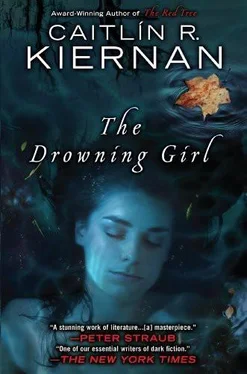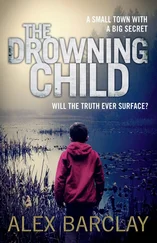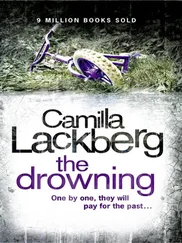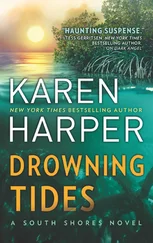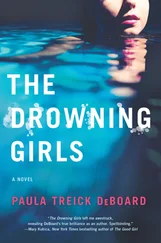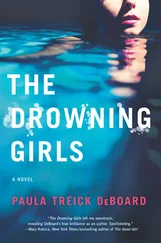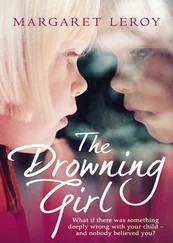Caitlín Kiernan - The Drowning Girl
Здесь есть возможность читать онлайн «Caitlín Kiernan - The Drowning Girl» весь текст электронной книги совершенно бесплатно (целиком полную версию без сокращений). В некоторых случаях можно слушать аудио, скачать через торрент в формате fb2 и присутствует краткое содержание. Год выпуска: 2012, ISBN: 2012, Издательство: Roc / New American Library, Жанр: Фэнтези, на английском языке. Описание произведения, (предисловие) а так же отзывы посетителей доступны на портале библиотеки ЛибКат.
- Название:The Drowning Girl
- Автор:
- Издательство:Roc / New American Library
- Жанр:
- Год:2012
- ISBN:978-0-451-46416-3
- Рейтинг книги:5 / 5. Голосов: 1
-
Избранное:Добавить в избранное
- Отзывы:
-
Ваша оценка:
- 100
- 1
- 2
- 3
- 4
- 5
The Drowning Girl: краткое содержание, описание и аннотация
Предлагаем к чтению аннотацию, описание, краткое содержание или предисловие (зависит от того, что написал сам автор книги «The Drowning Girl»). Если вы не нашли необходимую информацию о книге — напишите в комментариях, мы постараемся отыскать её.
The Drowning Girl — читать онлайн бесплатно полную книгу (весь текст) целиком
Ниже представлен текст книги, разбитый по страницам. Система сохранения места последней прочитанной страницы, позволяет с удобством читать онлайн бесплатно книгу «The Drowning Girl», без необходимости каждый раз заново искать на чём Вы остановились. Поставьте закладку, и сможете в любой момент перейти на страницу, на которой закончили чтение.
Интервал:
Закладка:
The Drowning Girl
A Memoir
by Caitlín R. Kiernan
For Peter Straub, master of the ghost story.
And for Imp.
In Memory of Elizabeth Tillman Aldridge
(1970–1995)
This is the book it is,
which means it may not be the book you expect it to be.
CRK
There’s always a siren,
Singing you to shipwreck.
In the forest is a monster.
It has done terrible things.
So in the wood it’s hiding,
And this is the song it sings.
Stories shift their shape.
“PRETTY MONSTERS,” KELLY LINK
1
“I’m going to write a ghost story now,” she typed.
“A ghost story with a mermaid and a wolf,” she also typed.
I also typed.
My name is India Morgan Phelps, though almost everyone I know calls me Imp. I live in Providence, Rhode Island, and when I was seventeen, my mother died in Butler Hospital, which is located at 345 Blackstone Boulevard, right next to Swan Point Cemetery, where many notable people are buried. The hospital used to be called the Butler Hospital for the Insane, but somewhere along the way “for the Insane” was dropped. Maybe it was bad for business. Maybe the doctors or trustees or board of directors or whoever makes decisions about such things felt crazy people would rather not be put away in an insane asylum that dares to admit it’s an insane asylum, that truth in advertising is a detriment. I don’t know, but my mother, Rosemary Anne, was committed to Butler Hospital because she was insane. She died there, at the age of fifty-six, instead of dying somewhere else, because she was insane. It’s not like she didn’t know she was insane, and it’s not like I didn’t know, too, and if anyone were to ask me, dropping “for the Insane” is like dropping “burger” from Burger King because hamburgers aren’t as healthy as salads. Or dropping “donuts” from Dunkin’ Donuts because doughnuts cause cavities and make you fat.
My grandmother Caroline—my mother’s mother, who was born in 1914, and lost her husband in World War II—she was also a crazy woman, but she died in her own bed in her own house down in Wakefield. No one put her away in a hospital, or tried to pretend she wasn’t crazy. Maybe people don’t notice it so much, once you get old, or only older. Caroline turned on the gas and shut all the windows and doors and went to sleep, and in her suicide note she thanked my mother and my aunts for not sending her away to a hospital for the mentally insane, where she’d have been forced to live even after she couldn’t stand it anymore. Being alive, I mean. Or being crazy. Whichever, or both.
It’s sort of ironic that my aunts are the ones who had my mother committed. I suppose my father would have done it, but he left when I was ten, and no one’s sure where he went. He left my mother because she was insane, so I like to think he didn’t live very long after he left us. When I was a girl, I used to lie awake in bed at night, imagining awful ways my father might have met his demise, all manner of just deserts for having dumped us and run away because he was too much of a coward to stick around for me and my mother. At one point, I even made a list of various unpleasant ends that may have befallen my father. I kept it in a stenographer’s pad, and I kept the pad in an old suitcase under my bed, because I didn’t want my mother to see it. “I hope my father died of venereal disease, after his dick rotted off” was at the top of the list, and was followed by lots of obvious stuff—car accidents, food poisoning, cancer—but I grew more imaginative as time went by, and the very last thing I put on the list (#316) was “I hope my father lost his mind and died alone and frightened.” I still have that notebook, but now it’s on a shelf, not hidden away in an old suitcase.
So, yeah. My mother, Rosemary Anne, died in Butler Hospital. She committed suicide in Butler Hospital, though she was on suicide watch at the time. She was in bed, in restraints, and there was a video camera in her room. But she still pulled it off. She was able to swallow her tongue and choke to death before any of the nurses or orderlies noticed what was happening. The death certificate says she died of a seizure, but I know that’s not what happened. Too many times when I visited her, she’d tell me she wanted to die, and usually I told her I’d rather she lived and get better and come home, but that I wouldn’t be angry if that’s really what she had to do, if she had to die. If there came a day or night when she just couldn’t stand it any longer. She said she was sorry, but that she was glad I understood, that she was grateful that I understood. I’d take her candy and cigarettes and books, and we’d have conversations about Anne Sexton and Diane Arbus and about Virginia Woolf filling her pockets with stones and walking into the River Ouse. I never told Rosemary’s doctors about any of these conversations. I also didn’t tell them about the day, a month before she choked on her tongue, that she gave me a letter quoting Virginia Woolf’s suicide note: “What I want to say is I owe all the happiness of my life to you. You have been entirely patient with me and incredibly good. I want to say that—everybody knows it. If anybody could have saved me it would have been you. Everything has gone from me but the certainty of your goodness.” I keep that thumbtacked to the wall in the room where I paint, which I guess is my studio, though I usually just think of it as the room where I paint.
I didn’t realize I was also insane, and that I’d probably always been insane, until a couple of years after Rosemary died. It’s a myth that crazy people don’t know they’re crazy. Many of us are surely as capable of epiphany and introspection as anyone else, maybe more so. I suspect we spend far more time thinking about our thoughts than do sane people. Still, it simply hadn’t occurred to me, that the way I saw the world meant that I had inherited “the Phelps Family Curse” (to quote my aunt Elaine, who has a penchant for melodramatic turns of phrase). Anyway, when it finally occurred to me that I wasn’t sane, I went to see a therapist at Rhode Island Hospital. I paid her a lot of money, and we talked (mostly I talked while she listened), and the hospital did some tests. When all was said and done, the psychiatrist told me I suffered from disorganized schizophrenia, which is also called hebephrenia, for Heˉbeˉ, the Greek goddess of youth. She—the psychiatrist—didn’t tell me that last part; I looked it up myself. Hebephrenia is named after the Greek goddess of youth because it tends to manifest at puberty. I didn’t bother to point out that if the way I thought and saw the world meant I was schizophrenic, the crazy had started well before puberty. Anyway, later, after more tests, the diagnosis was changed to paranoid schizophrenia, which isn’t named after a Greek god, or any god that I’m aware of.
The psychiatrist, a women from Boston named Magdalene Ogilvy—a name that always puts me in mind of Edward Gorey or a P. G. Wodehouse novel—found the Phelps Family Curse very interesting, because, she said, there was evidence to suggest that schizophrenia might be hereditary, at least in some cases. So there you go. I’m crazy because Rosemary was crazy and had a kid, and Rosemary was crazy because my grandmother was crazy and had a kid (well, several, but only Rosemary lucked out and got the curse). I told Dr. Ogilvy the stories my grandmother used to tell about her mother’s sister, whose name was also Caroline. According to my grandmother, Caroline kept dead birds and mice in stoppered glass jars lined up on all her windowsills. She labeled each jar with a passage from the Bible. I told the psychiatrist I’d suspect that my great-aunt Caroline might have only suffered from a keen interest in natural history, if not for the thing with the Bible verses. Then again, I said, it might have been she was trying to create a sort of concordance, correlating specific species with scripture, but Dr. Ogilvy said, no, she was likely also schizophrenic. I didn’t argue. Rarely do I feel like arguing with anyone.
Читать дальшеИнтервал:
Закладка:
Похожие книги на «The Drowning Girl»
Представляем Вашему вниманию похожие книги на «The Drowning Girl» списком для выбора. Мы отобрали схожую по названию и смыслу литературу в надежде предоставить читателям больше вариантов отыскать новые, интересные, ещё непрочитанные произведения.
Обсуждение, отзывы о книге «The Drowning Girl» и просто собственные мнения читателей. Оставьте ваши комментарии, напишите, что Вы думаете о произведении, его смысле или главных героях. Укажите что конкретно понравилось, а что нет, и почему Вы так считаете.
